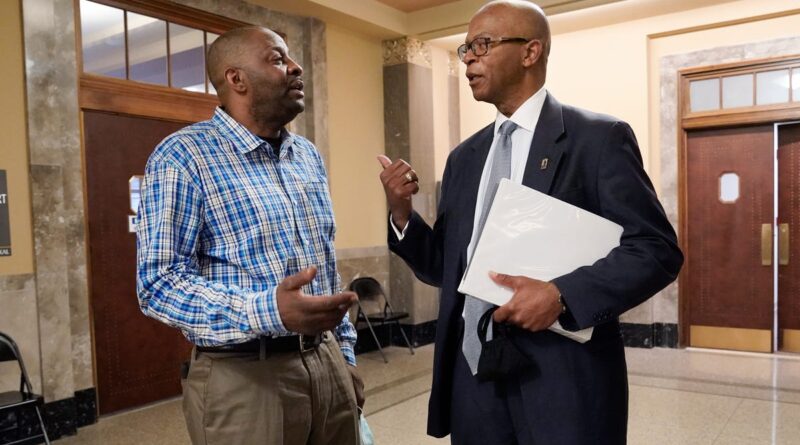Mostly-Black Mason, Tenn., Reached Deal To Control Its Own Finances

Officials in the tiny municipality of Mason, Tenn., have reached a settlement to prevent the state government from taking control of the town’s finances, just as a multi-billion-dollar new factory is built nearby.
Mason’s mayor and council have argued for months that an ultimatum from Tennessee Comptroller Jason Mumpower represented a difference in the treatment that financially-troubled Mason got from the state compared with mostly-white localities in a similar position. Mumpower had given Mason, with a population of less than 1,000 people, the choice of either relinquishing control of its budget and public expenditures to his office or giving up the city’s charter altogether.
It had been more than 20 years since Mason submitted required annual audits of its finances to the state on time, and the municipality routinely ran large budget deficits, the comptroller argued. Mason officials then sued, and yesterday’s settlement appears to give the town some breathing room to get its finances in order.
Under the deal, Mason officials will notify the state of any non-payroll expenditures over $1,000. Mason officials will also have to file monthly reports to the state and not weekly reports, as initially required. Notably, the deal will slash the monthly payment Mason had been paying on what it owed to its water and sewer funds from $10,000 to approximately $5,100.
The agreement, which was submitted to the court Wednesday, must still be approved by Martin.
“Mason’s agreement to a new corrective action plan is a significant step in restoring the town’s financial health,” Mumpower said in a statement. “Most importantly, if Mason follows this plan, taxpayers can know their leaders are being good stewards of their money.”
As we reported back in March, the dispute between Mason and Mumpower played out in the context of a huge economic project coming to the town’s backyard. Ford Motor Company plans a $5.6 billion new electric vehicle and battery facility dubbed Blue Oval City, which will sit just four miles from Mason, and some of the critical infrastructure like roads and rail lines leading to the new factory right right through or are directly adjacent to Mason.
That could put the town on the verge of new tax and development revenues, none of which its elected mayor or city council would have controlled with Mumpower over Mason’s finances or if the town was forced to give up its charter altogether.
The Mason situation was similar to other incidents of white officials moving to take control of municipal spending from Black ones.
In 2018, the public development authority in Duquesne, Pa., transferred $1.3 million from the city’s development funds to a private nonprofit entity controlled by an all-white board that included former city officials, just before the city’s first Black woman mayor, Nickole Nesby was sworn into office.
Duquesne, a Pittsburgh suburb, sued to get the money back and its city council agreed to a settlement that allowed the money to stay with the private group while having the city appoint someone to its board of directors. Nesby opposed the deal.

